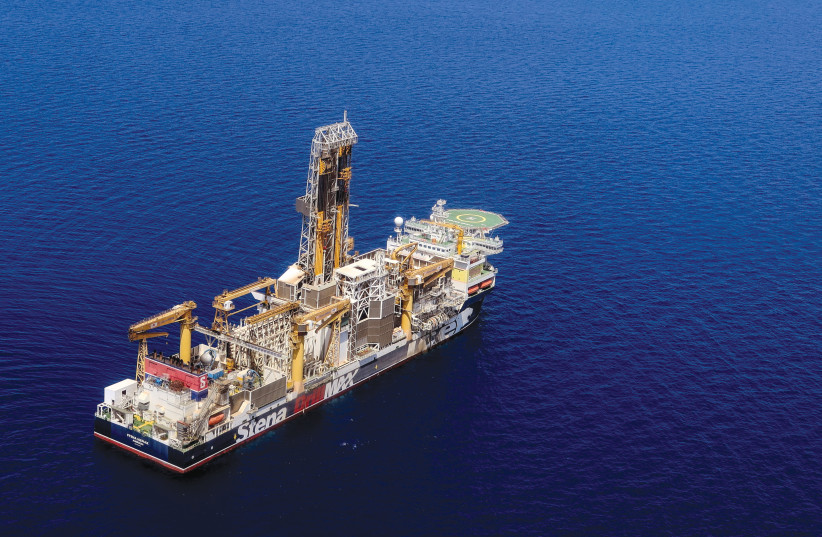Lebanon launches offshore gas exploration with international partners but crisis remains
Lebanon is set to begin exploratory drilling for oil and gas on Thursday, Lebanon’s Energy Minister Walid Fayad announced on Tuesday.
The exploration activities in Block Nine, as the field is called, will be launched by three foreign companies: QatarEnergy, Italy’s Eni, and France’s TotalEnergies.
Lebanon signed a maritime border deal with Israel in November 2022 after years of failed negotiations. Until the two sides had an agreed-upon border, neither side could explore for gas.
“In a few months, God will bless Lebanon with a flow of his grace, marking the beginning of solving the economic crisis that Lebanon and its people are experiencing,” said Parliament Speaker Nabih Berri.
However, experts believe that even if exploratory drilling finds formidable gas resources, more is needed to solve the country’s dire economic crisis.
 The London-based Energean’s drill ship begins drilling at the Karish natural gas field offshore Israel in the east Mediterranean on May 9. (credit: ARI RABINOVITCH/REUTERS)
The London-based Energean’s drill ship begins drilling at the Karish natural gas field offshore Israel in the east Mediterranean on May 9. (credit: ARI RABINOVITCH/REUTERS)Political reforms can help mend economy
Marwan Abdallah of the Organization for Petroleum & Energy Sustainability in Lebanon told The Media Line that deep political reforms are necessary if the gas is to help the country’s economy.
Lebanon must “minimize corruption, enhance the rule of law, and prioritize its business environment and infrastructure,” he said.
Jack Kennedy at S&P Global Market Intelligence agreed, noting Lebanon’s “deeply problematic structural and governance issues.”
In any case, Kennedy told The Media Line, it will take several years for gas production to come online, time “that the Lebanese economy doesn’t have.” The country’s debt is almost 450% of GDP, and inflation, now at 240%, will likely remain high next year.
To date, Kennedy said, the Lebanese government has yet to give an indication about establishing a sovereign wealth fund to oversee hydrocarbon revenue, raising questions about transparency and accountability in the use of gas revenue.
Laury Haytayan of the Natural Resource Governance Institute told The Media Line that the short-term benefits of gas production will be limited unless foreign exploration companies hire Lebanese firms for side services, such as catering and helicopter transport from the logistics center in Beirut to the drilling rig.
She said it is hard to know how much money will be earned from the gas until the exploratory drilling progresses. Only then, she notes, will Lebanon know how much gas is available and how expensive it will be to produce. At that point, Haytayan said, “we will understand the [potential] revenues.”
Abdallah says the crisis-weary Lebanese public is looking for good news. Lebanon’s rulers are taking advantage of this, using the specter of gas revenues to divert public attention from their responsibility for the country’s financial woes.
Abdallah says the public needs to keep pressuring the government for reforms, including ending corruption, good governance, and transparent practices in the oil and gas sector.
Public opinion, however, is divided, according to Hayatan.
Some “follow the traditional political parties and believe this is going save us from our crisis,” she said. In contrast, others think this will be a “lost opportunity” without reforms and changes in the behavior of the political class.





Comments are closed.